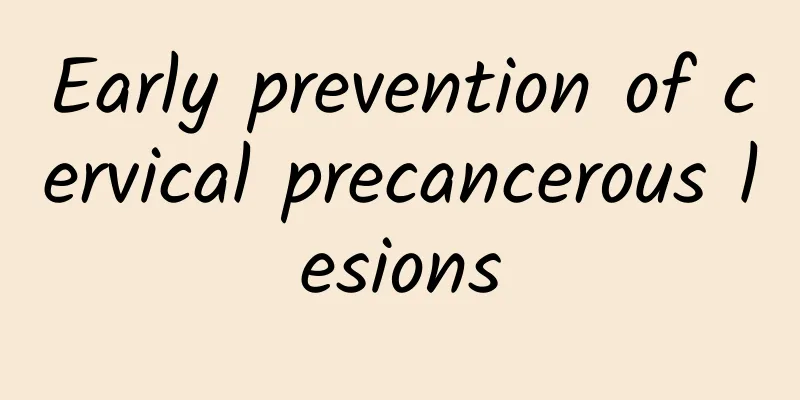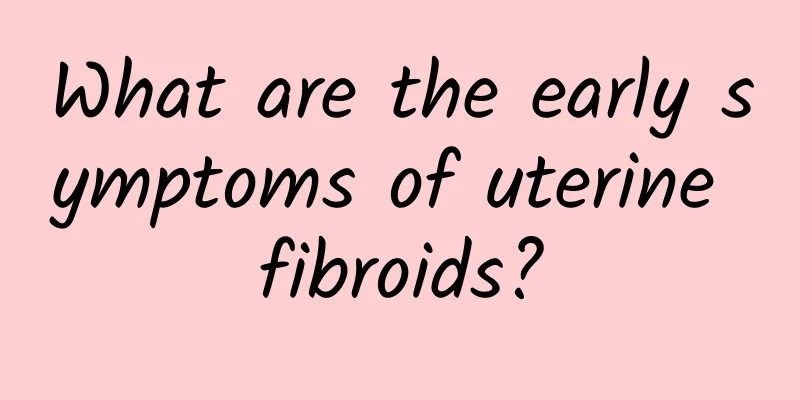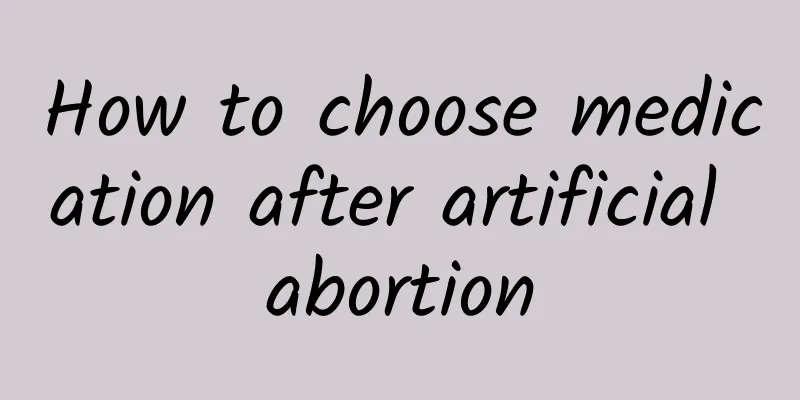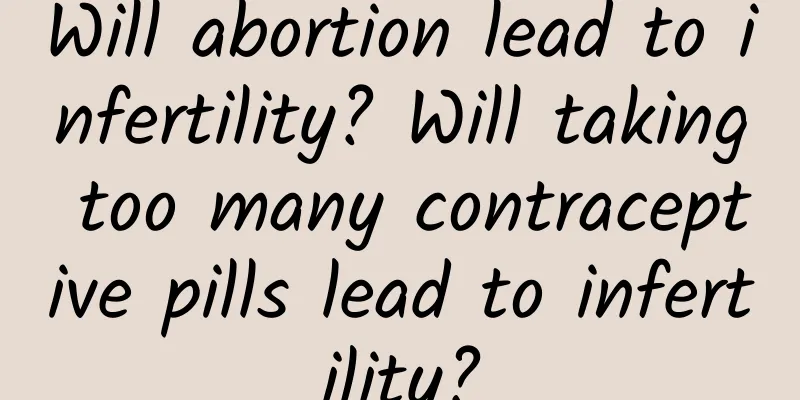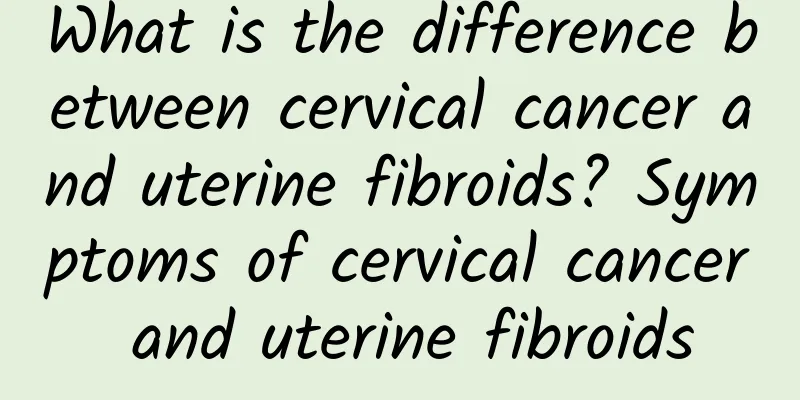What to do if you have uterine fibroids? How to treat uterine fibroids
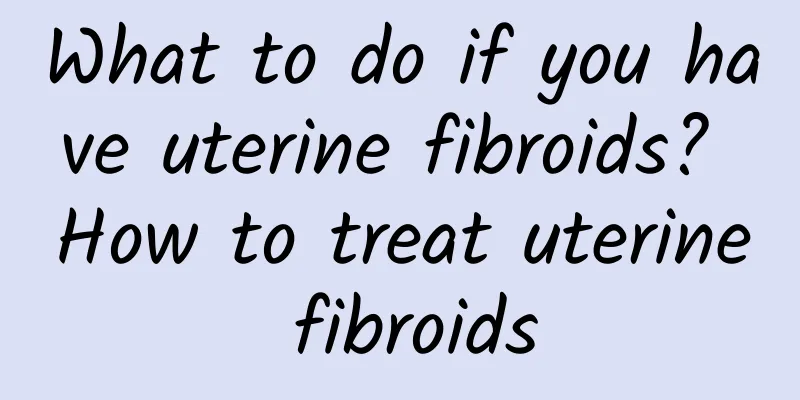
|
Nowadays, the incidence of uterine fibroids is gradually increasing, and it is becoming more and more popular among young female friends. This has a lot to do with our daily diet. Therefore, we must pay attention to the daily diet of patients with uterine fibroids. Let's take a look. Who is prone to uterine fibroids? Premature menopause in childless women The number of primordial follicles in a woman's lifetime is limited, and the ovulation period is about 30 years. During pregnancy and lactation, due to the action of hormones, the ovaries suspend ovulation and will not slowly resume until the lactation period. Therefore, the ovaries postpone a certain number of ovulations. Women with a history of childbearing enter menopause later. If women who have not given birth cannot protect progesterone in a timely and effective manner, they are prone to hormone-dependent diseases, uterine fibroids being one of them. Authoritative studies have shown that if women have a complete pregnancy process in their lifetime, they can increase their immunity for about 10 years, and the immunity in recent years is mainly against gynecological tumors. Sexual dysfunction affects uterine health Traditional Chinese medicine says that uterine fibroids belong to the category of "syndrome". The formation of "syndrome" is mostly related to weak vital energy and imbalance of qi and blood. Chinese medicine explains "syndrome": women are emotional people. If the husband and wife are not harmonious, it will inevitably hurt the seven emotions, which will cause internal injuries, poor qi movement, imbalance of qi and blood, and qi stagnation and blood stasis. Over time, it will become "syndrome". It can be seen that normal sexual life between husband and wife can promote the normal progress of neuroendocrine, while long-term sexual life disorders can easily cause hormone secretion disorders, leading to chronic pelvic congestion and inducing uterine fibroids. Depressed women are more likely to have uterine fibroids Middle-aged women face the dual mental pressure of work and family, and are prone to depression. With the arrival of menopause, women begin to experience the "estrogen control period". During this period, women's own depression can easily increase estrogen secretion and enhance the effect, which can sometimes last for several months or even years, which is also an important cause of uterine fibroids. When talking about the impact of emotions on uterine fibroids, Chinese medicine mentions: "Stagnation of Qi, internal injury caused by the seven emotions, liver dysfunction, and poor blood circulation stagnate in the uterus, manifesting as a mass in the lower abdomen that moves when pressed, pain in no fixed location that gathers and dissipates at times, depression, and fullness in the chest and flanks." It's the same principle. The three main symptoms of uterine fibroids: Increased leucorrhea Normal leucorrhea is a small amount of white, slightly sticky secretion, which will change slightly with the increase and thinning of the menstrual cycle. Uterine fibroids often cause increased leucorrhea, which may be pus-like and bloody, with a strange smell. Vaginal bleeding Vaginal bleeding is a common symptom of uterine fibroids, which manifests as irregular menstruation, increased menstrual volume, prolonged menstrual period, irregular vaginal bleeding, etc. pain Patients with uterine fibroids may also experience symptoms such as back pain and lower abdominal swelling. Severe abdominal pain may occur when the fibroid pedicle twists or the fibroid becomes red and degenerates. There are also compression symptoms, because the fibroid compresses the bladder and causes frequent urination and urination disorders, and compresses the rectum and causes constipation and poor defecation. What should I do if I have uterine fibroids? After all, uterine fibroids are tumors, so they cannot be treated like the common cold. They must be taken seriously and treated in a timely manner. Otherwise, no one can bear the consequences. Treatment of uterine fibroids is the key, but it cannot be done blindly, otherwise the patient will not recover. Certain treatment principles must be adhered to, and do not be impatient. For patients with mild uterine fibroids, most people will undergo conservative drug treatment. Uterine fibroid treatment is nothing more than drugs and surgery. The specific method depends on the location of the growth of the uterine fibroids. According to the location of the growth of the fibroids, it can be divided into three categories: intramural fibroids, subserosal fibroids, and submucosal fibroids. If the first two types are mostly asymptomatic, treatment is usually not required. Especially for people approaching menopause, due to the low estrogen level after menopause, the fibroids will naturally shrink or disappear, and only regular check-ups are required. However, when the fibroids are found to be enlarged or the symptoms are obvious, further treatment should be considered. Uterine fibroids must be treated early. Early treatment will not make the treatment seem so complicated and can allow patients to recover well. In addition, uterine fibroids can cause menstrual disorders in women. Based on this, patients can also be warned, but menstrual disorders are not necessarily caused by uterine fibroids. Generally, pregnancy, external pressure, severe weather changes, other gynecological inflammations and other factors can cause menstrual disorders, but if menstruation is irregular, there must be something wrong with the body. At this time, a systematic examination should be carried out to determine the cause of the irregular menstruation and take necessary measures this morning. How should patients with uterine fibroids eat on a daily basis? 1. The daily diet of patients with uterine fibroids should be regular and quantitative. They should not overeat or eat too much just because it tastes good, which will only increase the burden on the body. 2. Adhere to a low-fat diet, avoid high-fat foods, eat more lean meat, eggs, green vegetables and fruits. High vitamins and high protein are the best dietary principles for patients with uterine fibroids. 3. Patients can also eat more grains, such as corn, beans, etc., which are protein-rich foods. 4. Regularly eat dried fruits such as peanuts, sesame seeds, melon seeds, etc., which are rich in nutrients and beneficial to the patient's health recovery. 5. Patients with uterine fibroids must avoid spicy and irritating foods in their lives, and are prohibited from drinking alcohol, consuming frozen foods, etc. How to prevent and treat uterine fibroids 1. Maintain a good attitude towards life, be content, face the difficulties in life optimistically and positively, do not put pressure on your life, do not be nervous, and maintain a calm mind. 2. Have regular gynecological examinations. Uterine fibroids are small in size and have no obvious symptoms in the early stages of the disease. Only during gynecological examinations can it be found that the fibroids have grown quite large. Therefore, regular examinations should be conducted to detect and treat them in a timely manner. 3. Avoiding unwanted pregnancy and miscarriage is the key to preventing and protecting uterine fibroids. Couples should take reasonable contraceptive measures to minimize the number of miscarriages and reduce damage to the uterine wall. 4. Develop good eating habits. Good eating habits can reduce the incidence of uterine fibroids. Women should eat more foods containing protein and vitamins in their lives. You can also eat more iron-rich foods to prevent iron deficiency anemia. |
>>: What should I do if I have uterine fibroids? Treatment of uterine fibroids
Recommend
Four common nursing methods for dysmenorrhea
For female friends, especially those who suffer f...
Will the mother's ectopic pregnancy be passed on to the child?
Patients with ectopic pregnancy are very afraid t...
How to treat endometrial thickening effectively
For many women nowadays, they always suffer from ...
Changes highlight dangers of perimenopause
Changes highlight the harm of perimenopause. We s...
What is the cause of half-month menstruation?
What is the cause of half-month menstruation? Hal...
Complete list of treatments for cervical precancerous lesions
We must have a serious understanding of the conse...
Is there a high chance of inheriting cervical erosion?
Many people are asking this question: Is there a ...
We should take good care of adnexitis in daily life
Many women suffer from adnexitis. Most women do n...
[Video version] Strengthen immunity, top 10 anti-epidemic ingredients are on the list! Nutritionist: Broccoli, nuts, garlic, etc. can improve antioxidant capacity
The number of local cases has exceeded 100 one af...
Concept and symptoms of habitual miscarriage
Many female friends are very frightened when they...
How often to have sex after menopause
The specific time after menopause depends on your...
How to treat chronic cervicitis in women? The two best treatments for chronic cervicitis in women
Chronic cervicitis is a common gynecological dise...
Subserosal uterine fibroids
I believe everyone knows about uterine fibroids, ...
New snack ideas! Low-calorie chocolate and healthy chips
In 2013, there were many new breakthroughs in hea...
Purple anti-obesity craze! Have a glass of purple Korean vitality drink
Recently, there has been a purple whirlwind in ag...

